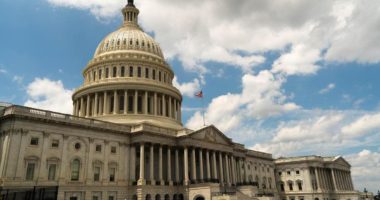Created in 1992 as section 340B of the Public Health Service Act, the 340B Drug Pricing Program is an important and controversial policy intended to help certain health care facilities that serve vulnerable patient populations remain profitable by guaranteeing them discounted prices on certain prescription medications.
How does the 340B Drug Pricing Program impact allergists?
Allergy practices generally will not be impacted by the 340B Drug Discount
Program unless they meet the criteria for a 340B “covered entity,” described in more detail below. An allergy practice that operates as part of a larger health care organization and qualifies as a covered entity might be able to access 340B discounts for eligible drugs purchased and used within the scope of the larger covered entity’s health care operations. However, assessing if an organization qualifies as a 340B covered entity must be done on a case-by-case basis.
Additionally, contract pharmacies often proactively contact 340B-eligible facilities to market their services. Contract pharmacies can provide pharmacy services for 340B covered products on the facility’s behalf. Some of these pharmacies contact practices that might not be eligible for 340B, which can cause confusion.
While 340B is not the most relevant federal program for allergy practices, it is helpful to have a better understanding of how the program works so that practices can be more informed if they are approached about participating in the program.
Overseen by the Health Resources and Services Administration (HRSA), the 340B Drug Discount Program mandates that drug manufacturers provide discounts on outpatient drugs to specific health care organizations known as “covered entities.” The types of health care facilities that can be covered entities include certain hospitals, such as: disproportionate share hospitals (which receive additional federal funding to assist with the costs of providing care to low-income and uninsured patients); critical access hospitals; children’s hospitals; Ryan White HIV/AIDS Program grantees; and other safety net providers serving vulnerable populations. Most physician practices are not eligible to participate in the program as a covered entity.
Through the 340B program, covered entities can purchase outpatient drugs from participating manufacturers at significantly reduced prices. The intent is threefold:
- The program is intended to serve vulnerable patient populations.
- Enrolled covered entities can save 25-50% on outpatient drug purchases.
- Savings are intended to be reinvested in patient care, such as offering discounted medications to low-income and uninsured individuals, broadening access to health care services, and supporting various community health care initiatives.
The 340B program has faced scrutiny and debate in recent years with concerns surrounding complexity, eligibility criteria, and oversight. For example, the 340B statute does not specify how 340B savings are to be used by covered entities. Critics believe the savings are not always directed to the patients who use these discounted products. The Senate Committee on Health, Education, Labor, and Pensions (HELP) is currently investigating the 340B program, including whether the savings generated actually benefit patient care. Nevertheless, the program serves as a crucial tool for many health care organizations as the discounts help facilities remain financially solvent while also providing access to affordable medications for underserved populations.
The Advocacy Council – ADVOCATING FOR ALLERGISTS AND THEIR PATIENTS.




